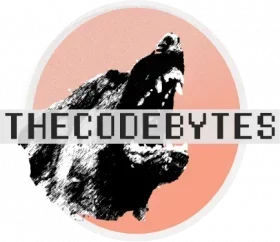So you’re wondering if CoffeeScript is dead? Well, it certainly looks like CoffeeScript isn’t the cool kid on the block like it was a few years ago. Although CoffeeScript is not completely dead, it is dropping incredibly quickly in popularity with developers. Why is this?
Well, in this article we are going to outline the top three reasons why CoffeeScript is basically dead in 2023 and why you shouldn’t be using it moving forward.
What Is CoffeeScript?
CoffeeScript is a programming language that compiles into JavaScript. The language was built to replace JavaScript and includes many features and syntactical sugar that JavaScript didn’t. While some developers still use CoffeeScript in their projects, it is very rarely used on new projects. Especially in commercial code.
If you want to know more about what CoffeeScript is, check out this article.
Reason #1: JavaScript Surpassed CoffeeScript
The main reason that CoffeeScript isn’t still a thing is that JavaScript improved greatly as a language and the gap between the benefits of CoffeeScript over JavaScript began to close.
JavaScript doesn’t have the greatest history and people used to really dislike the language. This was a major reason why so many JavaScript alternatives, like CoffeeScript, ElmScript, and PureScript came out to try and replace it.
After ES6 came out, that all changed. A bunch of features came out that allowed modularizing the codebase, simplifying the this keyword, destructuring objects, arrow functions, and a lot more. Many features like arrow functions and destructuring were available in CoffeeScript. Once they were included in the core language, people didn’t see the value in switching to CoffeeScript anymore.
Especially since CoffeeScript is a transpiler and not a native language. This means you have a performance overhead and added complexity to the development process that isn’t present by sticking to vanilla JavaScript.
Ultimately, the language failed because, although it had benefits over JavaScript, it wasn’t truly revolutionary. When the creators of JavaScript saw that people liked JavaScript preprocessors, they included the best parts of a lot of these processors and made the core language better.
CoffeeScript is no longer better than JavaScript. Since there was nothing CoffeeScript could do that JavaScript couldn’t, the language started to lose its value.
Reason #2: CoffeeScript Library/Framework Incompatibilities
Furthermore, an important part of programming is re-using libraries. Most of the libraries and frameworks only support JavaScript, so it was more difficult to use CoffeeScript with popular tools and libraries.
Whenever a library is created, the individual creator would need to make sure that their code plays nice with CoffeeScript, if the language isn’t widely adopted, the chances of someone spending time on this is slim.
This is another big reason CoffeeScript fell out of popularity.
Reason #3: Limited Community Support & Development
The real nail in the coffin for CoffeeScript is the discontinued support from the developers. Nobody wants to use a language that no one is still actively developing. Mainly because they know the language will never improve and any bugs with the language will remain unfixed.
Although there are still some active changes to CoffeeScript, there aren’t enough. For example, there was one new version released in 2022 and two versions in 2021. These changes seem to be simply trying to keep up with a changing JavaScript environment. However, there isn’t enough development to trust this as a production-level language in 2023.
As a general rule of thumb, if the community has abandoned a language, you probably should do.
Summary: Is CoffeeScript Dead?
Although CoffeeScript isn’t dead, it’s certainly on its way out. The language may have had a lot of promise in its early days, but it hasn’t been relevant in years. Mainly because JavaScript saw a lot of active development that improved the language greatly. Add in the overhead of using a preprocessor, incompatibility with new libraries and frameworks, and very little further development. The language doesn’t seem to be getting any popular moving forward.
If you’re new to web development and are looking to get into the industry, check out my free resources here.
